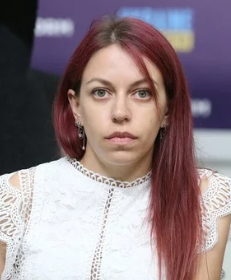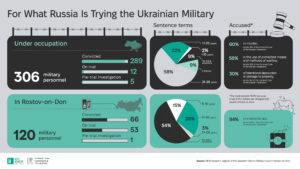184 Ukrainians died in Russian captivity since the beginning of full-scale war ─ Coordination Center for the Treatment of Prisoners of War
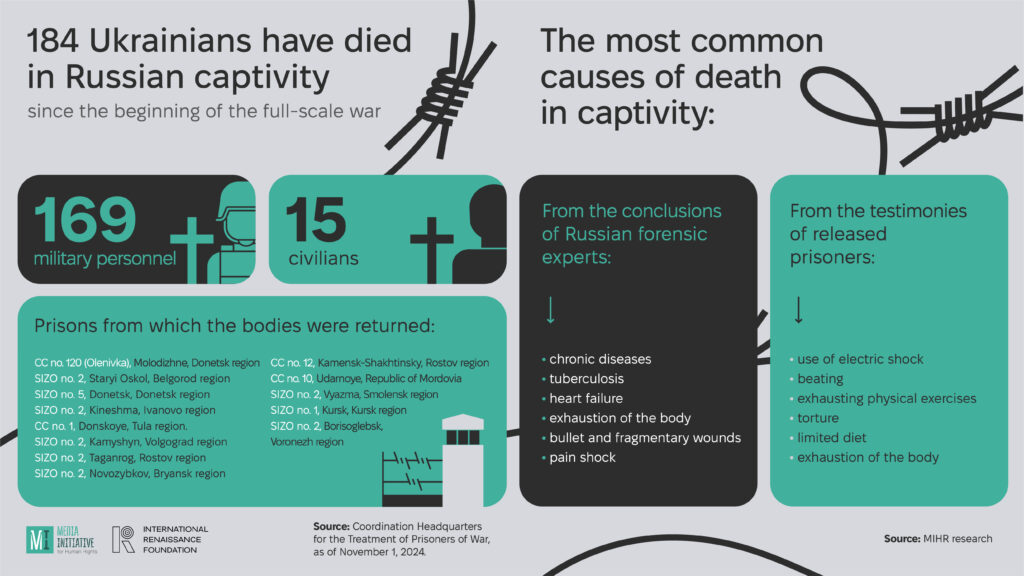
Between February 24, 2022, and the end of October 2024, 184 bodies of Ukrainians killed in captivity were returned to Ukraine. Among them are 169 military and 15 civilians.
The Coordination Headquarters for the Treatment of Prisoners of War reported this to the Media Initiative for Human Rights. At the same time, we assume that the number of dead prisoners is much higher.
Since February 24, 2022, the Media Initiative for Human Rights has documented the testimonies of 122 Ukrainian defenders held in Russian captivity. The collected testimonies describe systematic torture, isolation from the outside world, and denial of proper medical care. As a result, Ukrainian prisoners critically lose weight and suffer severe injuries. The documenters of the MIPL have also collected a lot of evidence of the deaths of POWs in places of detention. Most of them are caused by torture. We told these stories in the analysis “Rescue Mission: What Happens in Russian Captivity and How to Prevent Deaths of Ukrainian POWs.”
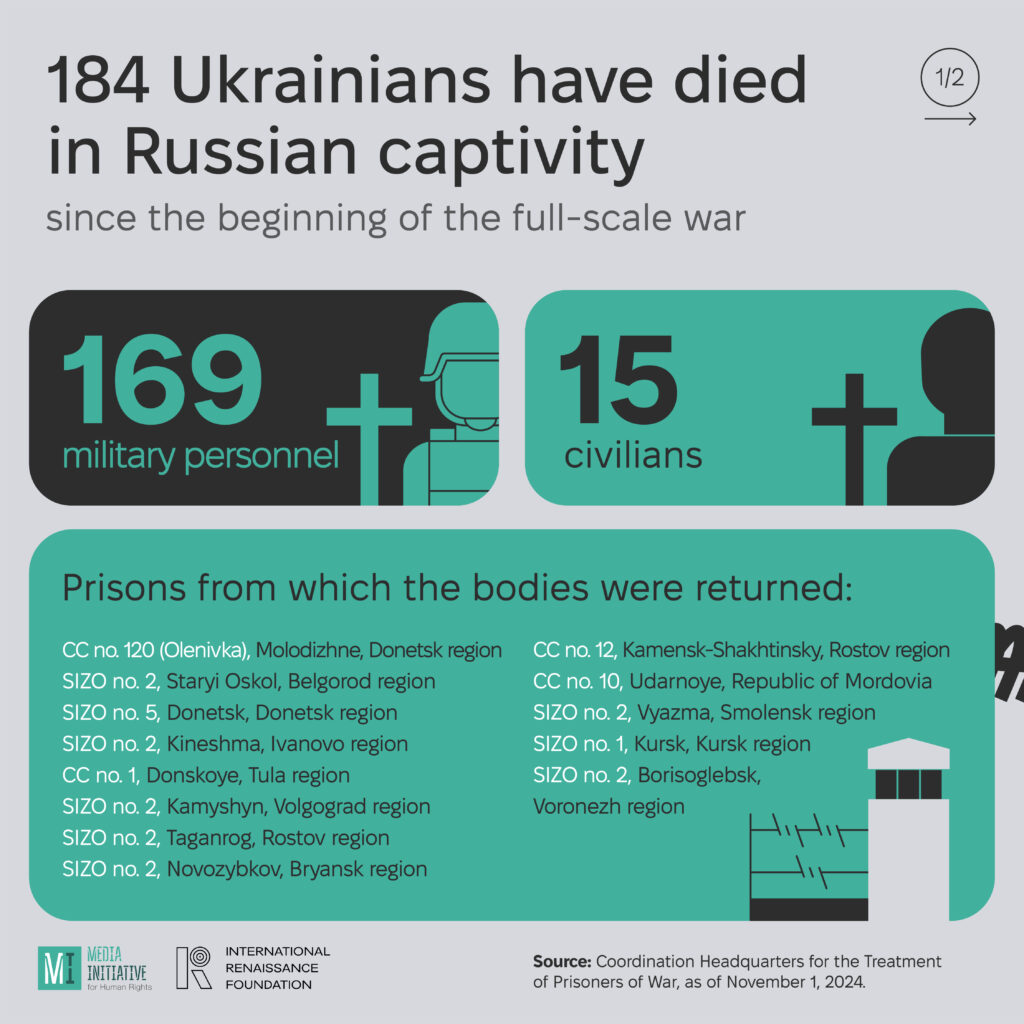
There are still many Ukrainian defenders in Russian captivity who have been there since the first months of the great war, i.e., more than 30 months. Russia does not allow monitoring mission representatives, including the International Committee of the Red Cross, to visit them. It does not inform Ukraine about the deterioration of their health or death. All of these are gross violations of the Geneva Conventions.
The 40th report of the UN Human Rights Monitoring Mission in Ukraine also mentions the deaths of POWs. From March 1, 2023, to August 31, 2024, the mission recorded the deaths of ten Ukrainian prisoners of war (all men) and one detained medical worker. 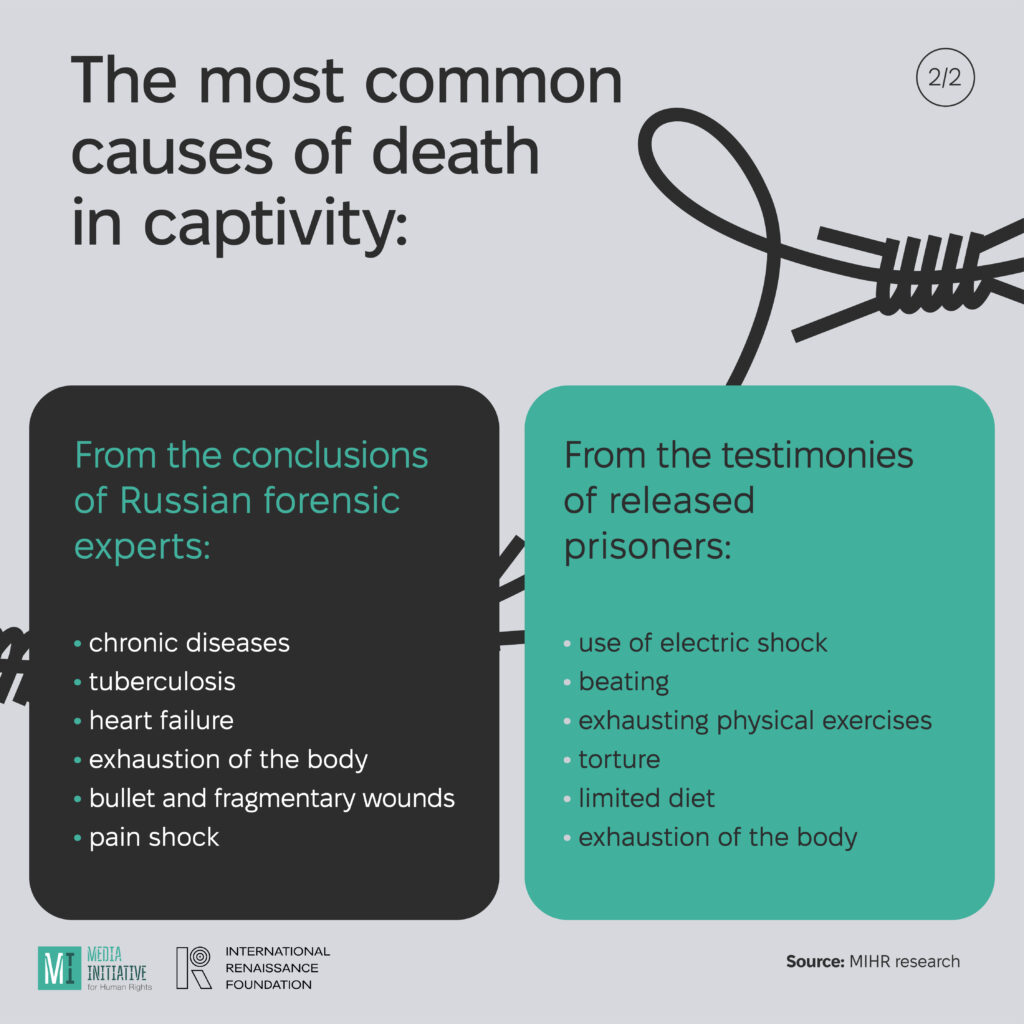
Among the 169 bodies of service members killed in captivity that were returned to Ukraine, there are 55 who died in the explosions in the Olenivka colony.
This publication was compiled with the support of the International RenaissanceFoundation. It’s content is the exclusive responsibility of the authors and does not necessarily reflect the views of the International Renaissance Foundation.


